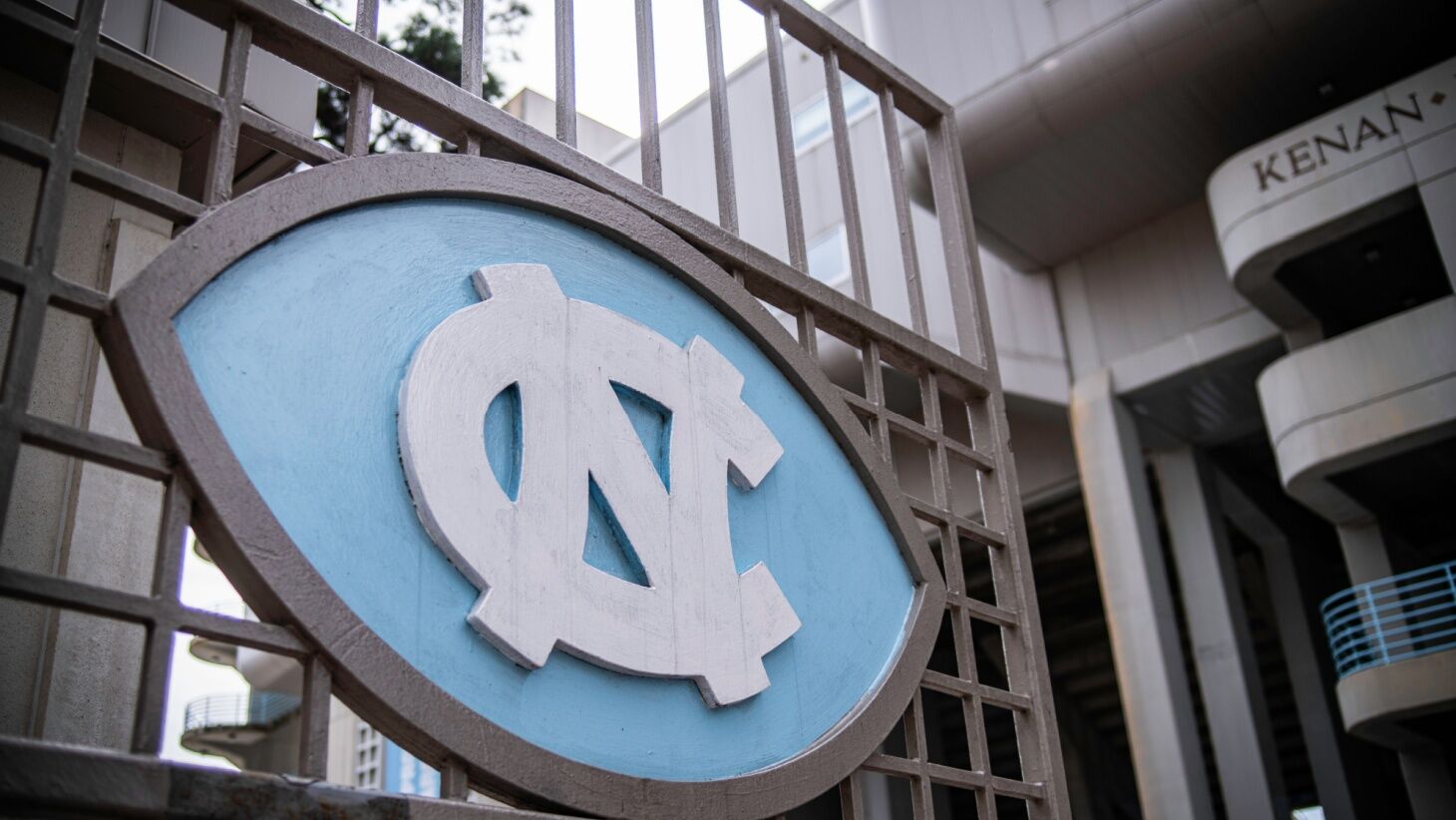

It is rare to find a college, even of the public variety, with an annual tuition figure only four digits in length. It is even rarer to find a university that provides an elite undergraduate education with numerous top-ranked academic programs for such an affordable sum. UNC-Chapel Hill is one the finest higher education bargains in the United States, and, for North Carolina residents, is often a no-brainer first choice. Of course, when you offer a premier product at a bargain price, there inevitably exists a lengthy line of customers waiting to get into the “store.” UNC receives a massive number of applications each year, and while the overall UNC-Chapel Hill acceptance rate has been steadily dropping, your chances of admission change dramatically depending on whether you are an in-state or an out-of-state student—more on that later.
While you have to be at the top of your class to be seriously considered, it is relatively “easy” to gain acceptance as a state resident versus as an out-of-stater or international student. Those who seek to don the iconic powder blue gear representing this stellar state school should fully grasp the admissions landscape before them. The intent of this article is to give those considering applying to UNC-Chapel Hill an understanding of the following topics:
Let’s begin with an examination of the most recent admissions data.
Class of 2027 acceptance rates have not yet been officially released by the university. However, the number of applications received and the number of students who chose to enroll are public (caveat: these numbers are for freshman and transfer students combined, which is slightly misleading).
For students who entered UNC-Chapel Hill in Fall 2023 (freshmen and transfers), UNC-Chapel Hill received 63,217 applicants. 5,602 accepted students chose to enroll: 4,700 first-year and 902 transfer students.
Therefore, based on the school’s historic yield rate (see below) we can estimate that the UNC-Chapel Hill acceptance rate continues to be between 16-19%.
Historical UNC acceptance rates are as follows:
| Applicants | Admits | Acceptance Rate | |
| Class of 2026 | 57,221 | 9,640 | 16.8% |
| Class of 2025 | 53,766 | 10,347 | 19% |
| Class of 2024 | 44,382 | 10,446 | 24% |
| Class of 2023 | 42,466 | 9,608 | 23% |
It is important to note that it is far more difficult to gain acceptance to this university if you are not a North Carolina resident. In-state students make up 82% of the student body and the state government has set a hard cap of 18% non-residents, so the school does not have an inch of wiggle room.
For the Class of 2026 (most recent data available), the UNC out-of-state acceptance rate was 8% compared to an in-state rate of 43%.
There may be a quantifiable edge to applying early action to UNC-Chapel Hill. The EA deadline for this school is October 15th. EA applicants are generally accepted at higher rates than those in the RD round. However, much of this difference may be attributed to special populations (e.g., recruited athletes) applying in the early round. In one recent year, the UNC-Chapel Hill Early Action acceptance rate was 13 points higher than the overall acceptance rate.
Among enrolled 2022-2023 first-year students (most recent data available), the average GPA was 4.47.
95% of enrolled students had a GPA of 4.0 or above, while 3% had a GPA between 3.75 and 3.99. Only 2% of students had a GPA between 3.25 and 3.74. Accordingly, if your GPA is less than 4.0, the chances of acceptance are very low.
Among enrolled 2023-24 first-year students, an impressive 75% hailed from the top 10%, while 92% earned a place in the top 20%.
According to the most recent statistics available (Class of 2027), the mid-50% SAT range for enrolled freshmen was 1370-1500, nearly identical to the year before.
The previous year, North Carolinians possessed scores in the 1340-1500 range while out-of-state students sported a mid-50% range of 1400-1540.
UNC-Chapel Hill considers seven factors as “very important” to the admissions process: rigor of high school course load, essays, recommendation letters, extracurricular activities, talent/ability, character/personal qualities, and state residency (being from NC is a major advantage). Items that are “important” as part of the admissions process are: GPA, class rank, volunteer work, and paid work experience. “Considered” factors are: first-generation status, legacy status, standardized test scores, and racial/ethnic status.
The admissions staff reads every application carefully and discusses them “at length” before extending an offer of admission. In their own words: “As we sit down to read each application, we really don’t have an ‘ideal’ student in mind. Rather, we like being surprised by each individual applicant’s interests and talents. But some common themes still tend to emerge among our favorites: They’re smart. Motivated. Service-oriented. Curious. Creative. Courageous. The kind of people who will not only flourish in but actively enhance our community while they’re here.”
It is also worth highlighting that recruited athletes enjoy a huge edge. This is because UNC-Chapel Hill takes great pride in their 28 NCAA Division I sports teams. Overall, approximately 870 student-athletes are presently attending the university.
For advice about how to stand out on the extracurricular front, check out our previous blog entitled How Many Extracurricular Activities Do I Need for College?
Let’s look at the demographics of the student body. UNC-Chapel Hill enrolls students from 79 countries and 49 U.S. states. One recent freshman class was comprised of the greatest numbers of students from the following U.S. states:
The fewest number of students came from the following U.S. states:
Among non-residents, competition is stiffest among those hailing from states with endless streams of qualified applicants (the entire Northeast & the West Coast). If you hail from the Deep South like Alabama or Mississippi or a less-populated state like Wyoming or North Dakota, your location is more likely to provide a boost to your admissions chances.
Looking at ethnic identity, the breakdown in the Class of 2027 was as follows:
Looking at the gender breakdown, the university enrolls far more women than men:
Percentage of Class of 2027 members who…
UNC-Chapel Hill’s yield rate—the percentage of accepted students who elect to enroll, divided by the total number of students who are admitted—is 45%. This figure is comparable to other powerhouse state universities like the University of Michigan, UVA, and UCLA.
If you plan on joining the 60,000+ Tarheel hopefuls for the next admissions cycle, you should know the following:
For a detailed look at how to tackle these essays, visit our blog entitled: UNC-Chapel Hill Supplemental Essay Prompts and Tips.
Those with SAT/ACT scores within the mid-50% range who are also at the very top of their respective high school class are absolutely viable candidates for UNC-Chapel Hill.
Moreover, if you live in North Carolina, your road to acceptance will be much smoother than if you are an out-of-state or international applicant. If you do not hail from the Tar Heel State, you will need to bring higher test scores and, possibly, a special skill or “hook.”
Yes, you do! The UNC Chapel Hill acceptance rate for transfers is much higher than it is for freshmen. In the 2022-23 cycle, 1,535 students were accepted out of 3,645 applicants, meaning that the transfer acceptance rate is a very friendly 42%. Here is a sampling of past transfer acceptance rates:
| Year | Acceptance Rate |
| 2021-22 | 47% |
| 2020-21 | 45% |
| 2019-20 | 49% |
It goes without saying that all teens applying to a school of UNC’s ilk also need to also have a proper mix of “target” and “safety” schools on their college list. Need more on creating a balanced college list? Check out How Many Colleges Should I Apply To?
Additional resources you might find useful include:

A licensed counselor and published researcher, Andrew's experience in the field of college admissions and transition spans two decades. He has previously served as a high school counselor, consultant and author for Kaplan Test Prep, and advisor to U.S. Congress, reporting on issues related to college admissions and financial aid.
“Innovative and invaluable…use this book as your college lifeline.”
Nationally Recognized College Expert